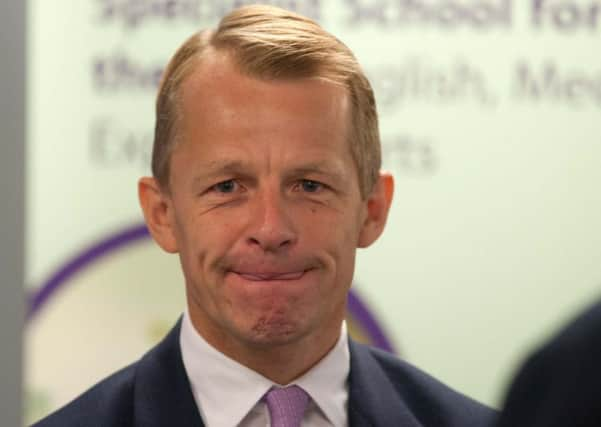Heads should ‘knock on doors’ to ensure pupils attend


David Laws told MPs that the fund given to schools to help them teach the poorest children could allow staff to spend time engaging with families, making sure parents are supportive and ensuring that children attended.
He was giving evidence as part of the Education Select Committee’s inquiry into the attainment of working class white children.
Advertisement
Hide AdAdvertisement
Hide AdThe Liberal Democrat Schools Minister said the performance of white children from disadvantaged groups was lower than poorer pupils from other ethic groups and that there was also a gender split with boys performing worse than girls.
However he said he did not want to see separate strategies created for pupils of different ethnicity.
He told MPs today that the pupil premium, a key policy of the Lib Dems in the coalition, had made an impact in helping to close the gap in attainment between pupils from deprived backgrounds and their peers.
Mr Laws also highlighted the success of London schools over the past ten to 15 years which he said was acting as a spur to other areas of the country.
Advertisement
Hide AdAdvertisement
Hide AdHe said: “If this can be achieved with disadvantaged young people in the capital city which was thought of as a sink area for educational attainment then why can’t it be achieved in areas like Portsmouth or Barnsley where barely one-in-five white children on free school meals achieve five Cs at GCSE including English and maths, which is a pretty disgraceful outcome.”
Mr Laws suggested that in some parts of the country there had been a “poverty of expectations.”
He added: “There are obviously schools and local authorities in all parts of the country where aspirations are very high. And that will be based on good leadership in local authorities or schools or academy chains.
“But there are too many where even today, after all the pressure of the last government and this government, aspirations are way too low in local areas, in schools, in local authorities.”
Advertisement
Hide AdAdvertisement
Hide AdHe suggested national targets for GCSE attainment could also be set higher in future.
The DfE has raised the floor target facing schools from getting 30 per cent of pupils achieving five good grades including English and maths to 40 per cent and there are plans to increase it further to 50 per cent.
Mr Laws said it could go higher still. “We know from some of the best schools in London with the toughest catchments that there is no reason in future why 70, 80 and 85 per cent of young people can’t reach those levels of attainment and in some of our competitor nations abroad they now are,” he said.